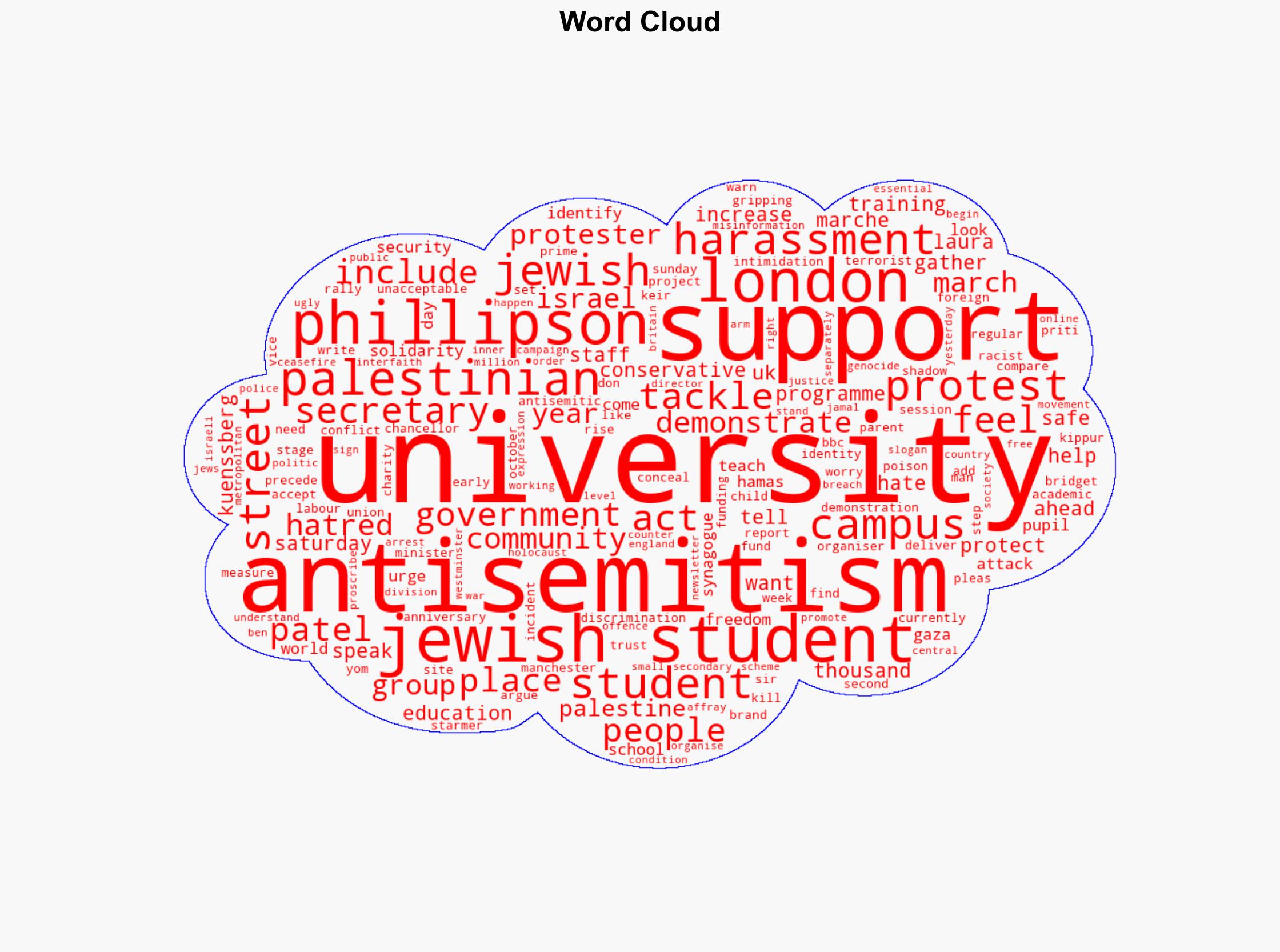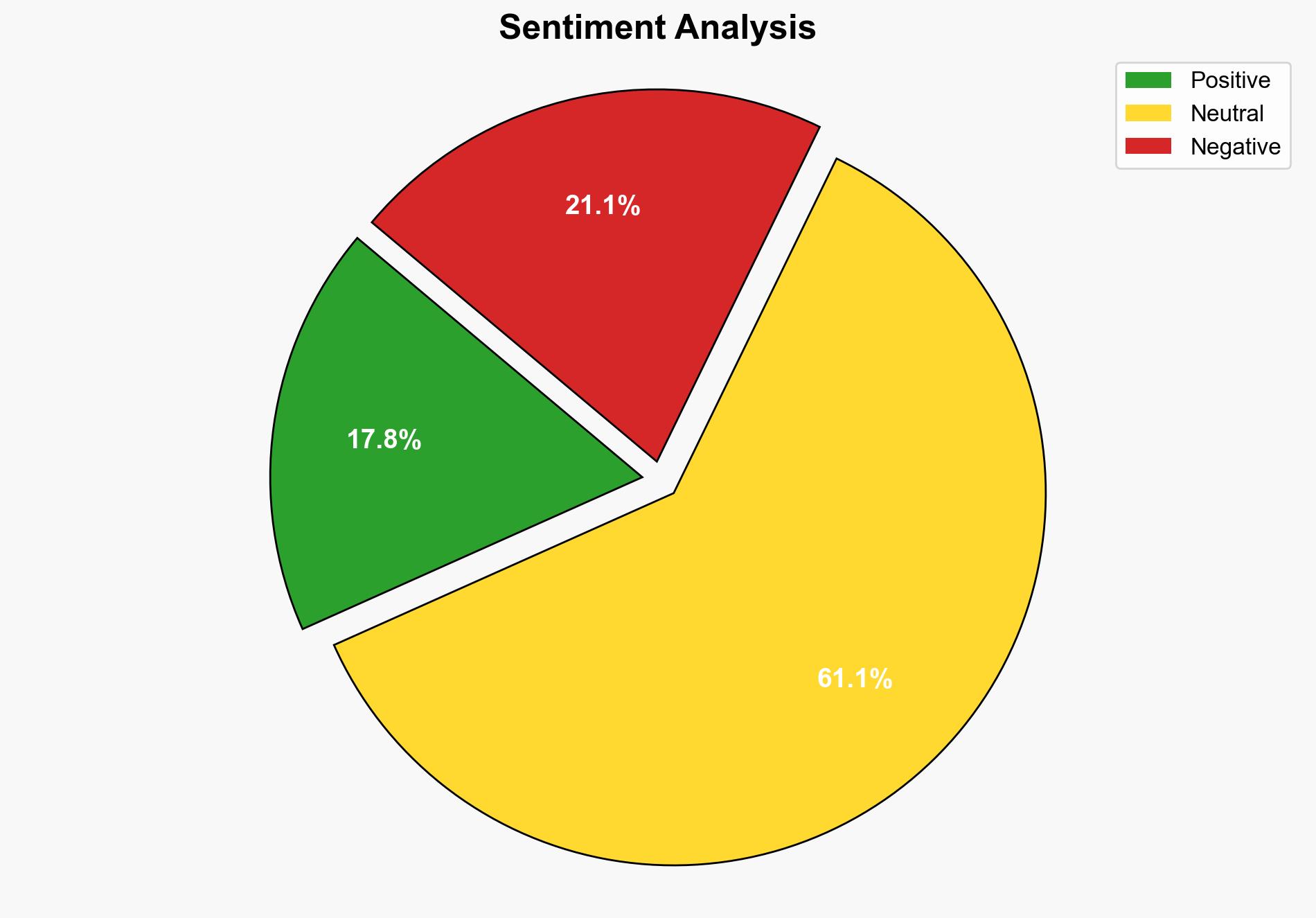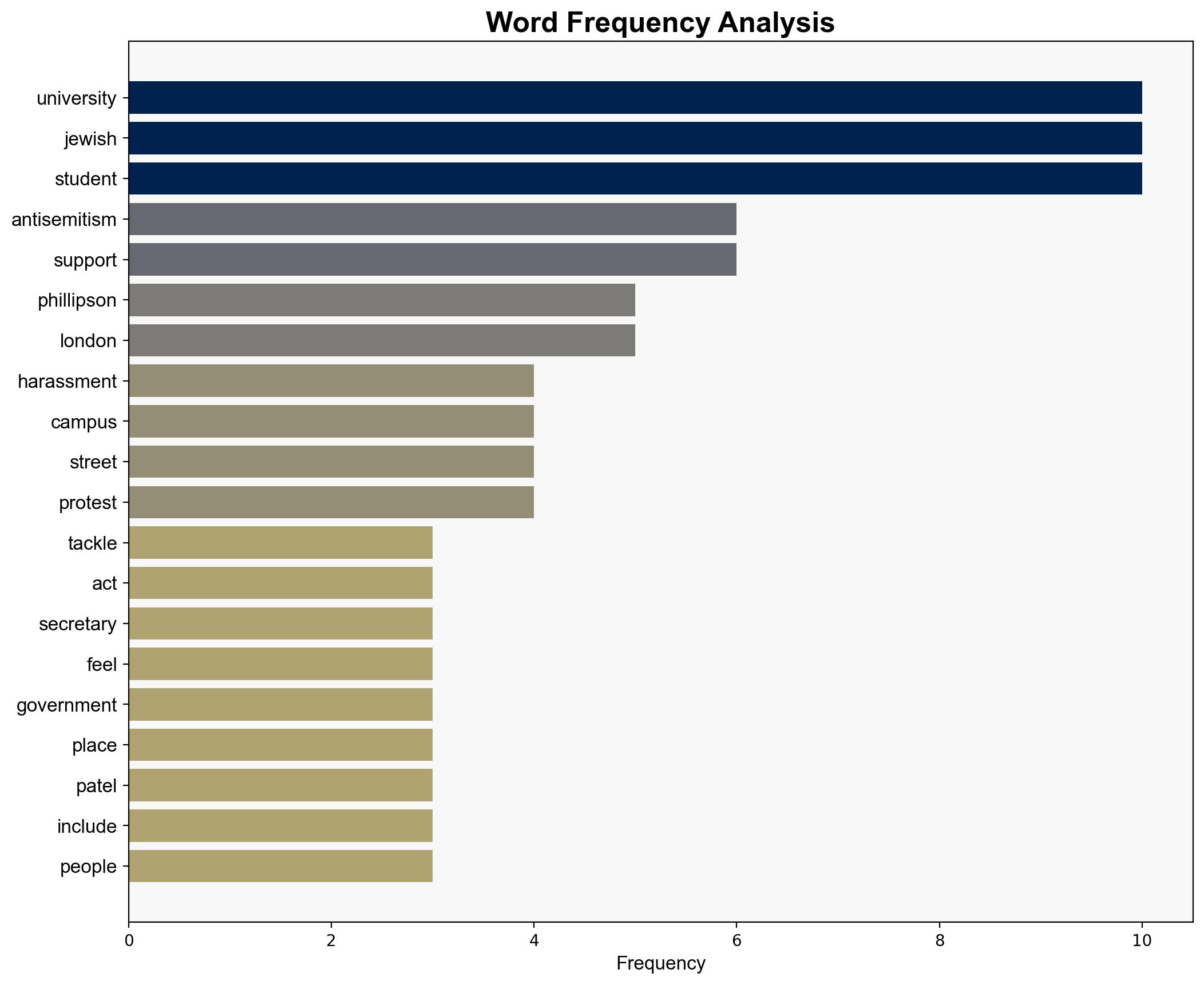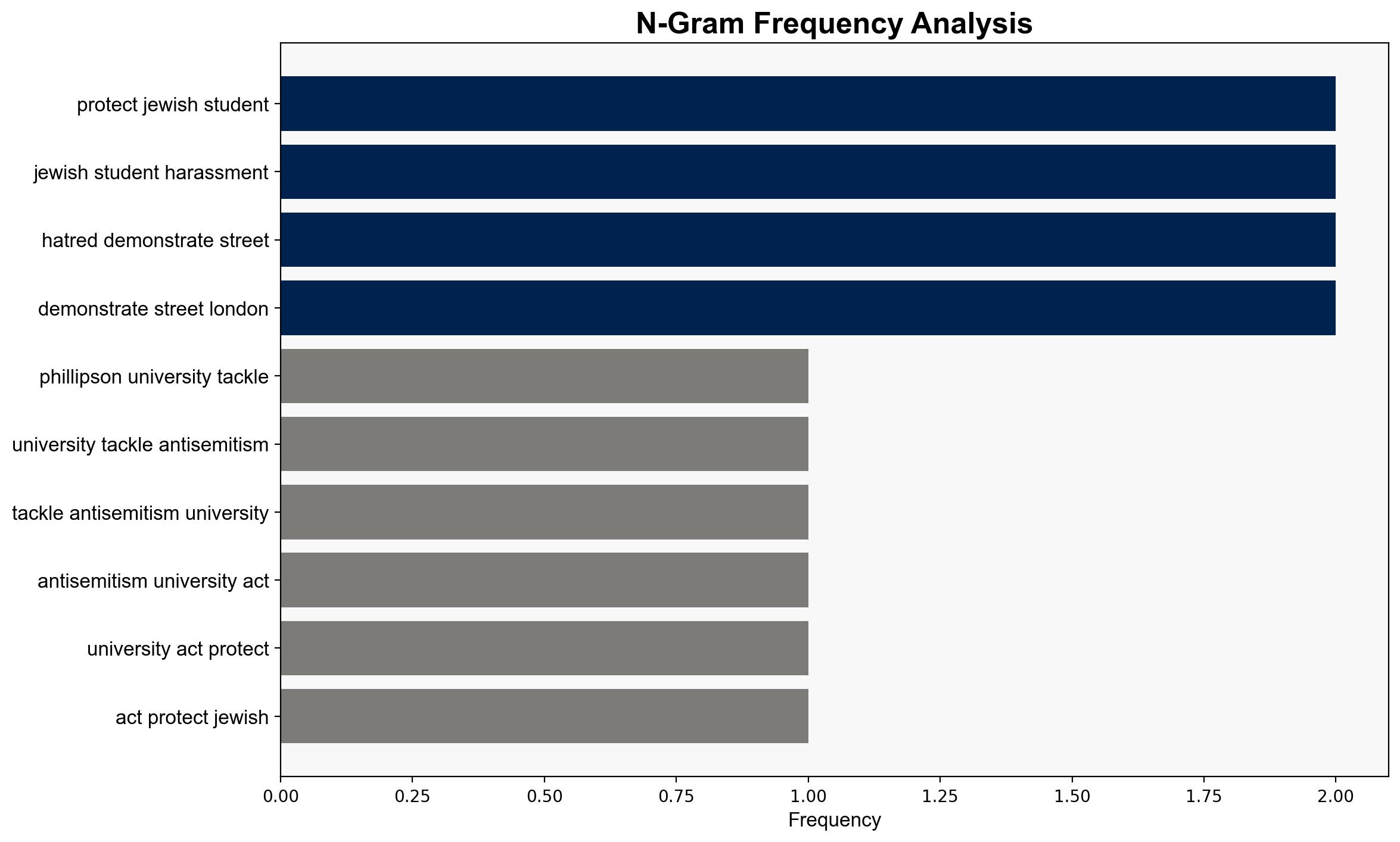Phillipson Universities must tackle antisemitism – BBC News
Published on: 2025-10-12
Intelligence Report: Phillipson Universities must tackle antisemitism – BBC News
1. BLUF (Bottom Line Up Front)
The most supported hypothesis is that the rise in antisemitism on university campuses is primarily driven by external geopolitical events, particularly the Israel-Palestine conflict. This report is generated with a moderate confidence level due to the complexity and multifaceted nature of the issue. Recommended actions include enhancing campus security measures and promoting interfaith dialogue to mitigate tensions.
2. Competing Hypotheses
1. **Hypothesis A**: The increase in antisemitism on university campuses is primarily a result of external geopolitical tensions, notably the Israel-Palestine conflict, which has intensified sentiments and led to increased demonstrations and incidents of hate speech.
2. **Hypothesis B**: The rise in antisemitism is largely due to internal factors within universities, such as inadequate policies to address discrimination and a lack of awareness or training among staff and students about antisemitism.
Using the Analysis of Competing Hypotheses (ACH) 2.0, Hypothesis A is better supported by the correlation between the timing of geopolitical events and the rise in antisemitic incidents. The presence of protests and the rhetoric used during these events further supports this hypothesis.
3. Key Assumptions and Red Flags
– **Assumptions**: It is assumed that the reported increase in antisemitic incidents is accurately measured and not influenced by increased reporting or awareness. Another assumption is that university policies are currently insufficient to address the issue.
– **Red Flags**: Potential bias in reporting from politically motivated groups could skew perception. The lack of detailed data on the specific nature and perpetrators of antisemitic incidents is a significant blind spot.
4. Implications and Strategic Risks
The continuation of antisemitic incidents could lead to increased polarization on campuses, potentially escalating into violence. This situation may also damage the reputation of educational institutions and affect international student enrollment. Geopolitically, it could strain UK-Israel relations and impact domestic policy regarding freedom of speech and protest.
5. Recommendations and Outlook
- Implement comprehensive training programs for staff and students to recognize and counter antisemitism.
- Enhance security measures on campuses, particularly during periods of heightened geopolitical tension.
- Foster interfaith dialogues and partnerships with Jewish community organizations to build understanding and resilience.
- Scenario Projections:
- Best Case: Successful implementation of measures leads to a significant decrease in incidents and improved campus climate.
- Worst Case: Failure to address the issue results in increased violence and international criticism.
- Most Likely: Incremental improvements with periodic flare-ups related to external geopolitical events.
6. Key Individuals and Entities
– Bridget Phillipson
– Priti Patel
– Sir Keir Starmer
– Ben Jamal
7. Thematic Tags
national security threats, counter-terrorism, regional focus, social cohesion, educational policy





